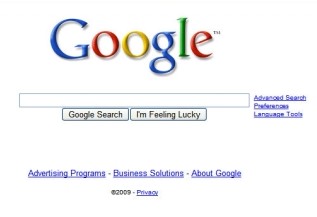Like many games, branding is easy to learn and hard to master. Many companies understand the concept of brand management and the importance of having a likeable voice, but it’s difficult to truly become the next Apple or Coca-Cola.
The recipe for creating a successful brand is manifold – it’s about doing the right things as much as it’s about not doing the wrong things. The traditional concept of a brand – a personality that’s established and controlled by the company itself – is changing, and as such, businesses need to adjust. This can create several opportunities where you could potentially misstep if you aren’t cautious. Here are four pitfalls you should avoid as you look to establish or maintain your brand.
1. Failure to Create the Right Voice
Innovative products and services are crucial to any business, but a voice is just as important. Apple is known not only for high-quality products, but also the ingenuity and creativity of its brand. The company attracts artists and like-minded individuals because of its strong, innovative messaging. In a world where seemingly every electronics manufacturer makes MP3 players and smartphones, Apple’s voice has set it apart from competitors.
“Voice is important,” explains MarketingProfs. “… It’s the message, and the essence, of what you’re doing. A brand may have amazing ideas, but if the message is worthless… the execution will suffer.”
2. Being a Machine, not a Man
The internet has proliferated the importance of personality. Now that consumers have just as much control over brands as the companies themselves do, they expect to be talking to people. Impersonal, cookie-cutter messages don’t fly as well as they once did, because people can see right through them. You need to be authentic with prospects, regardless through which channels you engage them (although some avenues, such as social media, demand this trait even more).
“Authenticity is about what sets one brand apart from another in a manner that is relevant to its customers,” explains brand strategist Thomas Oosthuizen. “Being authentic means a brand is unique in the way it satisfies consumer needs – in a way that no other brand can. Being authentic also means the brand owner knows what makes the brand unique, which enables [it] to deliver that uniqueness to the market, time and time again.”
3. Always Evolving
When it comes to doing business, it’s always wise to experiment and evolve. The same goes with brand management – a company’s voice can become outdated and irrelevant if it doesn’t change with the market.
At the same time, there needs to be a limit. If your brand is always changing, consumers may find it difficult to identify with. Just as companies need some sort of structure, brands do as well. Once you have found a voice that resonates, stick with it. Have a plan and don’t keep changing your brand’s ideals when the wind switches direction.
4. Here Today, Gone Tomorrow
How memorable is your brand? Certain companies thrive in this regard. Tissues are constantly called Kleenex, while Google has become a verb for using a search engine. These are brands that are so well-known and popular that many people see them as being synonymous with the product or service category itself.
Your brand should never be forgettable. Proper brand awareness means finding ways to stay relevant to your consumers by engaging them frequently, releasing new products and services or otherwise establishing yourself as an industry thought-leader. If people immediately forget about your company, all your brand management work is for naught.
When establishing your company’s brand, it’s just as important to avoid doing wrong. Don’t fall into these branding traps, and you’ll help your company become more relevant.
